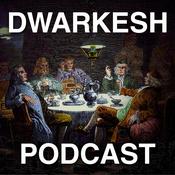62 episodios
- In this episode, Jared is joined by Samir Talwar to talk about why “programming peaked” and how the developer experience has arguably regressed over the last 15 years—from losing powerful IDE refactoring workflows to the ways pull requests can turn into delayed integration. They dig into what teams lost when testing became “everyone’s job,” why reviews often get stuck in surface-level diff commentary, and how pairing (with rotation) can restore earlier feedback and shared context. They also get into infrastructure trade-offs: containers and Let’s Encrypt are huge wins, but Kubernetes and other “Google-scale defaults” can add heavyweight complexity for teams that don’t actually need it.
Links:
Samir Talwar (site)
“Programming Peaked” (Samir’s post)
Language Server Protocol (LSP)
Visual Studio Code
Vim
Continuous integration (Martin Fowler)
Extreme Programming (XP)
Pull requests (GitHub docs)
Kubernetes
Docker
Let’s Encrypt
Mastodon
Dead Code Podcast Links:
Mastodon
X
Jared’s Links:
Mastodon
X
twitch.tv/jardonamron
Jared’s Newsletter & Website
Episode Transcript
Hosted on Acast. See acast.com/privacy for more information. - Jared talks with Sabine Schmaltz, an OCaml Developer Advocate at Tarides, about how she went from learning Standard ML in a demanding university course to getting hired for an OCaml role despite only having written “Hello, World,” and what she’s building now: FeedMansion, a tool to improve multi-account social posting and make OCaml community content more engaging with better summaries/teasers. Sabine explains her pragmatic stack—an OCaml backend using the minimalist Dream framework, a SolidJS frontend, and OCaml-based static site generation with MLX (a JSX-like approach that gives type-checked HTML)—and notes that OCaml’s syntax can feel foreign, which is part of why projects like Reason/ReScript help. They dig into where the real friction is today: not OCaml itself, but managing LLM-assisted coding responsibly, dealing with tooling/documentation transitions (like keeping agents on Dune instead of older opam-first guidance), and handling cases where LLMs stumble—such as complex typed database queries—where she used OCaml’s PPX system to generate safer code. The conversation widens to community building via FUN OCaml (Berlin 2024, Warsaw 2025, planning 2026), what’s new in OCaml (multicore support and effect handlers), the value and risk of AI-generated open source contributions, and Sabine’s advice for introducing OCaml at work: start small, choose problems where OCaml shines (DSLs/codegen, reliable services), and help the ecosystem by open-sourcing missing building blocks like API clients.
Links:
Hindley–Milner type system
Standard ML
OCaml
ReScript
ReasonML / Reason
Tarides
X/Twitter: @sabine_s_
GitHub: @Sabine
Bluesky: @sabine.sh
Dream (OCaml web framework)
SolidJS
MLX (.mlx / JSX for OCaml)
TyXML
Opam
FUN OCaml
ICFP (International Conference on Functional Programming)
OCaml Workshop 2025
Semgrep
Dead Code Podcast Links:
Mastodon
X
Jared’s Links:
Mastodon
X
twitch.tv/jardonamron
Jared’s Newsletter & Website
Episode Transcript
Hosted on Acast. See acast.com/privacy for more information. - Jared interviews Steve Klabnik (Rust author and longtime OSS contributor) about JJ (Jujutsu), a newer version control system that can operate on Git repos via pluggable backends so you can adopt it locally without forcing teammates to switch, while getting a simpler, more flexible workflow. Steve explains JJ’s core shift: no staging/index—your working copy is effectively a mutable commit you shape as you work, making it easier to split, squash, and rewrite history without juggling Git’s extra layers and flags, and even “stash” becomes just more visible commits. He highlights JJ’s stable change IDs (so you can refer to work even as hashes change), its conflict model where rebases complete immediately and mark conflicted commits for later resolution (great for many parallel branches), and features like jj absorb (auto-placing review fixes into the right earlier commits) and jj undo (a full operation history that makes experimentation feel safe). Steve also teases work on a JJ-native collaboration/review product inspired by Gerrit-style patch workflows.
Links:
Jujutsu (jj) on GitHub
Jujutsu docs
Steve’s Jujutsu tutorial
“I see a future in jj” (Steve Klabnik)
East River Source Control (ERSC)
jj CLI reference
jj absorb
jj undo
Working with Gerrit (jj docs)
Git commit “trailers” / metadata
Git hooks
Git LFS
Perforce Helix Core
Sapling SCM
Mercurial
GitButler
The Rust Programming Language (“The Book”)
Steve Klabnik’s site
why the lucky stiff (Wikipedia)
Dead Code Podcast Links:
Mastodon
X
Jared’s Links:
Mastodon
X
twitch.tv/jardonamron
Jared’s Newsletter & Website
Episode Transcript
Hosted on Acast. See acast.com/privacy for more information. - In this episode, GitHub engineer Joel Hawksley breaks down the evolution of GitHub’s UI architecture—from Rails views to ViewComponent to React—and the tradeoffs behind each step. ViewComponent emerged as a practical, backwards-compatible way to eliminate duplicated UI logic in GitHub’s massive Rails monolith, ultimately supporting thousands of components and becoming a key driver of consistency and accessibility. Joel explains how hard UI correctness is compared to backend systems, how keyboard-only tests surfaced real accessibility regressions, and why ViewComponent v4 streamlines the project as it enters a stable, long-term support phase. He also discusses why GitHub increasingly leans on React for complex, app-like behavior: developer enthusiasm, design-system tooling, CSS encapsulation, and the need to manage frontend–backend sync at scale. The conversation closes with reflections on the realities of open-source maintenance and the importance of stability as ViewComponent’s future.
Links:
Joel Hawksley’s Website
ViewComponent Website
ViewComponent GitHub Repo
Primer ViewComponents
Primer ViewComponents Repo
Phlex Website
Phlex GitHub Repo
Herb GitHub Repo
ReActionView GitHub Repo
WCAG Accessibility Standards
Rails Strict Locals Documentation
Dead Code Podcast Links:
Mastodon
X
Jared’s Links:
Mastodon
X
twitch.tv/jardonamron
Jared’s Newsletter & Website
Episode Transcript
Hosted on Acast. See acast.com/privacy for more information. - In this Dead Code episode, Jared and ReScript contributor Josh Vlk explain why ReScript is a strongly typed, sound language for web development that compiles to JavaScript, offers first-class React support, and favors a “one right way” approach (built-in formatter, no linters) over TypeScript’s configurable sprawl. They trace its evolution from Reason/BuckleScript to today’s standalone ReScript, with v12 shedding legacy OCaml baggage, adding a rewritten Rust compiler for major speed, native monorepo support, zero-cost JS bindings, and automated upgrade fixes. The pair highlight how variant types and exhaustive pattern matching naturally model complex business logic and make refactors safe and fast, often resulting in less code and fewer bugs. Adoption can be incremental—drop a rescript.json, compile alongside TS/JS, and start with a small component or state reducer. Jared closes by urging developers to try it, noting ReScript’s consistency may also make it especially friendly for AI-assisted coding.
Links:
ReScript
TypeScript
ReasonML
BuckleScript
OCaml
Rust
“ReScript Has Come a Long Way — Maybe It’s Time to Switch from TypeScript” by Josh Vlk
“Domain Driven Design Made Functional” by Scott Wlaschin (F# / functional programming concepts)
ReScript Forums
ReScript Docs
ReScript Packages on npm – Community bindings and libraries
Josh Vlk on Bluesky
Josh’s website
Dead Code Podcast Links:
Mastodon
X
Jared’s Links:
Mastodon
X
twitch.tv/jardonamron
Jared’s Newsletter & Website
Episode Transcript
Hosted on Acast. See acast.com/privacy for more information.
Más podcasts de Tecnología
Podcasts a la moda de Tecnología
Acerca de Dead Code
The software industry has a short memory. It warps good ideas, quickly obfuscating their context and intent. Dead Code seeks to extract the good ideas from the chaos of modern software development. Hosted on Acast. See acast.com/privacy for more information.
Sitio web del podcastEscucha Dead Code, The AI Daily Brief: Artificial Intelligence News and Analysis y muchos más podcasts de todo el mundo con la aplicación de radio.net

Descarga la app gratuita: radio.net
- Añadir radios y podcasts a favoritos
- Transmisión por Wi-Fi y Bluetooth
- Carplay & Android Auto compatible
- Muchas otras funciones de la app
Descarga la app gratuita: radio.net
- Añadir radios y podcasts a favoritos
- Transmisión por Wi-Fi y Bluetooth
- Carplay & Android Auto compatible
- Muchas otras funciones de la app


Dead Code
Escanea el código,
Descarga la app,
Escucha.
Descarga la app,
Escucha.






































